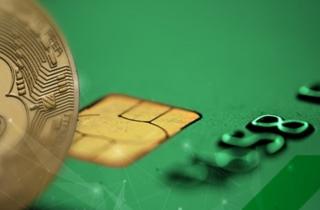Uniswap (UNI) vs Sushiswap (SUSHI) - What's the Difference?
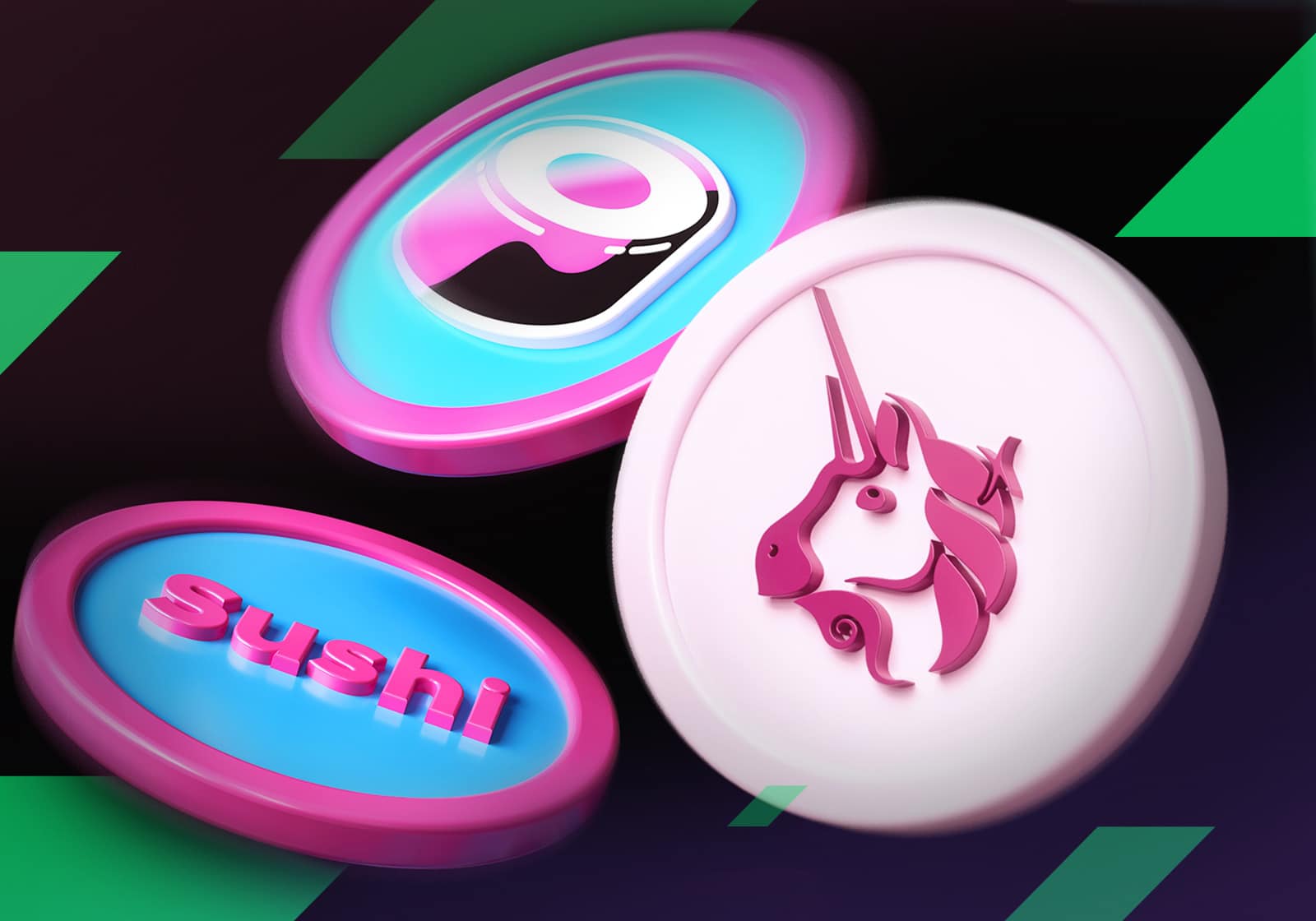
The Uniswap (UNI) vs Sushiswap (SUSHI) debate has been a trending topic in the decentralised exchange (DEX) world. Uniswap, the leading DEX on Ethereum, has gained significant success since its launch in 2018. Sushiswap, a newer player in the field, has quickly become popular among users. This article explores the differences between Uniswap and Sushiswap, intending to help you choose the best crypto decentralised exchange.
What is the Difference Between Uniswap and Sushiswap?
Both platforms provide excellent options for trading cryptocurrencies without relying on centralised exchanges. While Uniswap is the more established protocol, Sushiswap offers unique features that may appeal to users.
Uniswap, one of the best crypto decentralised exchanges, has gained a significant market share and enjoys high trust from users on Ethereum-based blockchains. It boasts low fees and a user-friendly interface, enhancing the user experience. However, Uniswap's functionality is limited to basic features like AMM-based swapping and liquidity pool farming.
On the other hand, SushiSwap stands out for its innovative approach, offering diverse features. It serves as a multi-chain solution, catering to Ethereum-based blockchains and other networks such as BSC and Fantom.
Deciding which is the best decentralised crypto trading platform depends on the specific features you require and the blockchains on which you wish to trade tokens. It is essential to conduct your research as functions and fees can change over time. This article provides the ground for thinking by comparing Uniswap (UNI) vs Sushiswap (SUSHI) key points. Let's dive in!
What is Uniswap (UNI) Token?
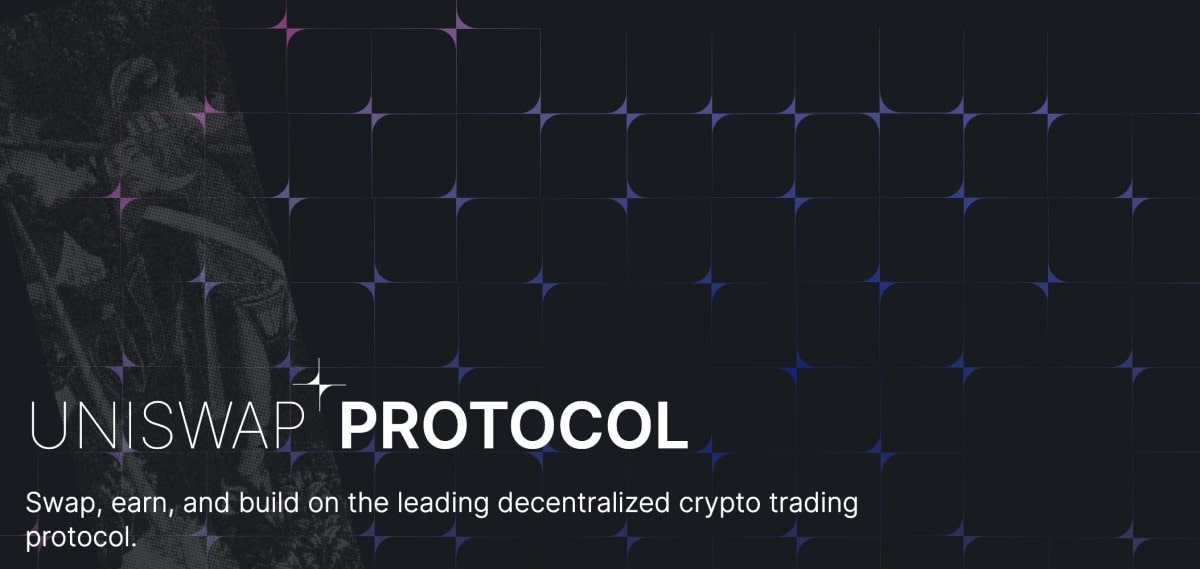
Uniswap is a widely used DEX protocol on Ethereum that enables users to trade ERC-20 tokens directly, bypassing the need for a central exchange. It has been operational since November 2018 and remains the platform's oldest and most popular DEX. Uniswap (UNI) crypto boasts the highest trading volume among DEXes, with over $2 billion worth of ETH exchanged daily.
The UNI token is an ERC-20 token that serves as a governance token for the platform. Token holders have the right to vote on platform developments and changes, including the fee structure of the decentralised exchange (DEX). Introduced in 2020, the UNI token was designed to prevent users from migrating to SushiSwap. Its maximum supply is hard-capped at 1 billion tokens, and this limit is expected to be reached by late 2024.
Key points of Uniswap
Uniswap is a decentralised crypto exchange platform (DEX) that operates on Ethereum, Polygon, and Optimism. It enables users to trade ERC-20 tokens by utilising an automated liquidity protocol. This protocol pools tokens from multiple users to create a "liquidity pool."
One of the key advantages of Uniswap is that it does not require users to create an account, ensuring privacy for those who prioritise it. Trading on Uniswap can be carried out through a Web3 wallet.
For each trade, Uniswap charges a 0.1% fee. This fee applies to all transactions conducted on the platform.
Uniswap V3 is the latest release from the platform and is considered the most efficient automated market maker (AMM) globally.
There are several Uniswap clones available in the market that offer traders more choices. Some popular clones include:
- SushiSwap. Launched in 2020, SushiSwap aims to provide additional benefits to liquidity providers. It offers higher returns and has its governance token called SUSHI.
- PancakeSwap. Operating on the Binance Smart Chain, PancakeSwap is a Uniswap clone that offers lower fees and faster transactions than Uniswap.
- QuickSwap. QuickSwap is another Uniswap clone that operates on the Polygon network. It also provides lower fees and faster transactions compared to Uniswap.
What is Sushiswap (SUSHI)?
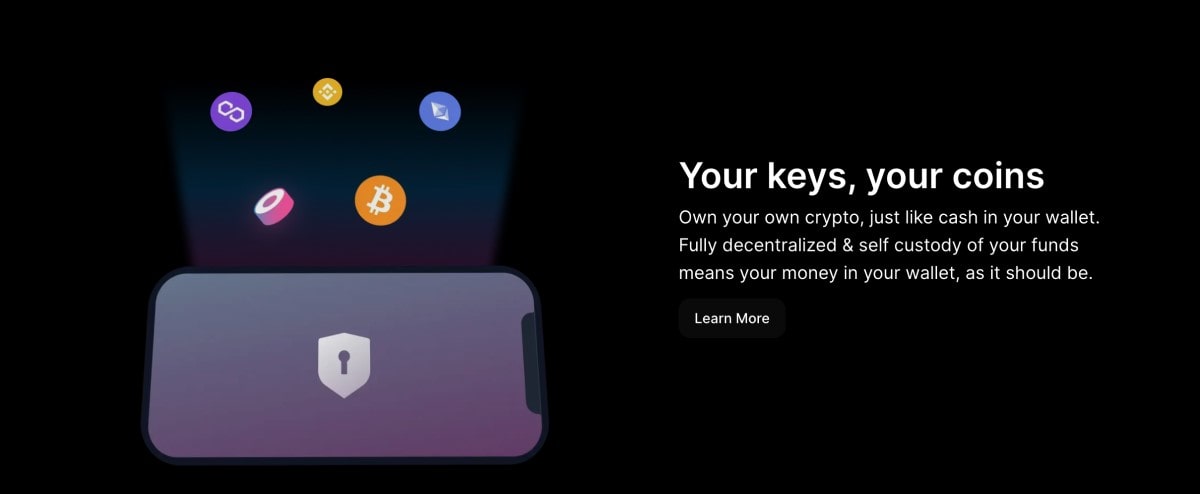
Sushiswap, launched in September 2020, is a fork of Uniswap. It brings various new features and enhancements compared to Uniswap, such as staking rewards, enhanced liquidity, and reduced fees. Sushiswap also has its Sushiswap (SUSHI) token, which is utilised for fee payments and earning rewards.
Uniswap offers a variety of key features for users. One of its main features is the swap feature, which lets users quickly buy and sell crypto assets across multiple blockchains. Another essential feature is the ability to trade NFTs. Uniswap aggregates NFTs from various marketplaces, providing users with a wide selection of options to buy and sell.
Additionally, Uniswap offers liquidity pools. Users have the option to choose from existing pools or create their own. They can also customise the fees and set price ranges, allowing them to concentrate their capital where they anticipate the highest return.
Key points of Sushiswap
Sushiswap is a decentralised crypto exchange platform (DEX) that operates on multiple blockchains, including Ethereum, Fantom, Avalanche, Optimism, Arbitrum, and others. It enables users to trade ERC-20 tokens without the need for a custodian. Sushiswap implements an automated liquidity protocol similar to Uniswap and offers a unique feature called Kashi Lending, which allows users to stake their LP tokens and earn additional rewards. The platform charges a 0.2% fee on all trades. Recently, Sushiswap introduced SushiXSwap, the first DEX that enables cross-chain swaps and trades within a single user interface.
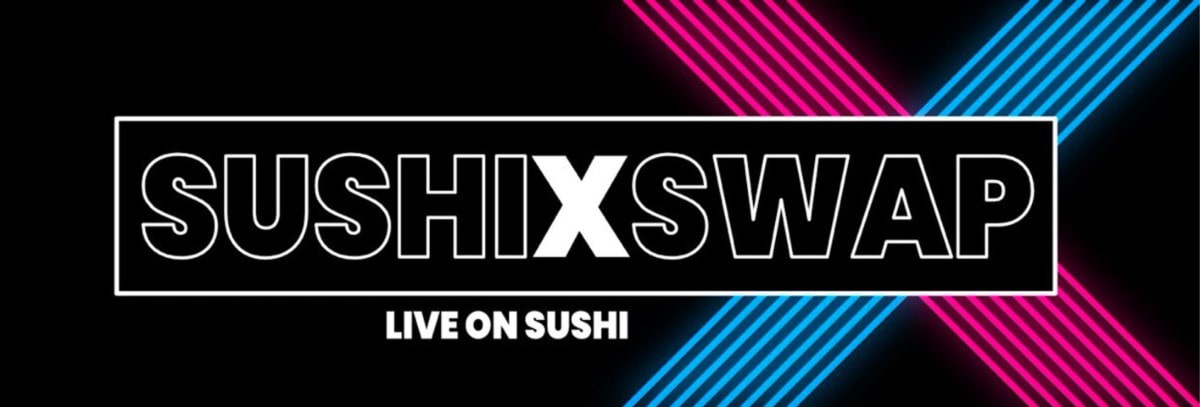
Sushiswap vs Uniswap Conclusion: Making the Choice
When comparing Uniswap and Sushiswap, there are important differences to consider.
Uniswap is a decentralised protocol that facilitates the trading of Ethereum-based tokens. It uses smart contracts to automate token exchange and does not require sign-ups or deposits. On the other hand, Sushiswap is a fork of Uniswap that introduces additional features such as liquidity mining, staking, and governance. Sushiswap also allows trading of a wider range of assets, including Bitcoin and other cryptocurrencies.
Uniswap V3 charges a 0.1% fee on trades, while Sushiswap charges a higher fee of 0.25%. However, Sushiswap offers a liquidity mining program where users are rewarded with SUSHI tokens for providing liquidity to the protocol.
A team of developers manages Uniswap, while the community manages Sushiswap through a decentralised governance model. Sushiswap allows anyone to submit proposals and vote on them.
Uniswap and Sushiswap are good options for trading cryptocurrencies without relying on centralised exchanges. While Uniswap is more established, Sushiswap offers enticing new features. Ultimately, users should determine which platform best meets their requirements. Regardless of the choice, conducting thorough research and understanding the risks associated with trading on decentralised exchanges is crucial.
Tags
Try our Bitcoin Cloud Miner and get additional crypto rewards based on your trading volume. It's immediately available upon registration.
Try our Bitcoin Cloud Miner and get additional crypto rewards based on your trading volume. It's immediately available upon registration.
FAQ
Is SushiSwap a clone of Uniswap?
SushiSwap, launched in 2020, is considered a clone of Uniswap. It aims to offer additional advantages to liquidity providers, just like Uniswap clones that have emerged, providing traders with more choices.
Which token is better, Uniswap or SushiSwap?
Uniswap and SushiSwap are viable choices for cryptocurrency trading without relying on centralised exchanges. Uniswap, being the more established option, holds its advantages. On the other hand, SushiSwap introduces unique features that may appeal to users.
Is SushiSwap the same as Uniswap?
SushiSwap differs from Uniswap as it was introduced in 2020 as a fork of Uniswap, featuring a more structured governance system. This new model enables token holders to participate in voting for important matters. Uniswap, on the other hand, was launched in 2018 as an open-source project without a formal governance structure.
What is the difference between Uniswap, PancakeSwap and SushiSwap?
Uniswap, PancakeSwap, and SushiSwap are all decentralised exchanges (DEX) with distinct characteristics. Uniswap is the largest DEX overall, while PancakeSwap caters explicitly to the Binance blockchain and has gained significant popularity. On the other hand, SushiSwap stands out by offering trading capabilities across more than 20 different blockchains.



